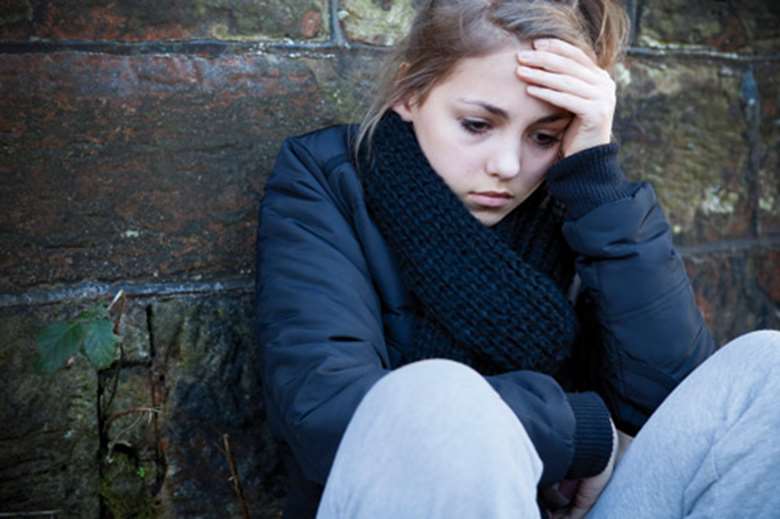Older children enter safeguarding spotlight
Lauren Higgs
Monday, January 23, 2012
Teenagers are rarely top of the agenda for child protection services. Victims in the majority of high-profile child protection cases are infants or young children, while older young people tend to be perceived by many professionals as more resilient and less vulnerable to harm.

But the number of older children entering care is on the rise. In 2010/11, 27,310 children were taken into care. Of these, 11,690 (43 per cent) were older than 10. Moreover, of those 11,690 children, 80 per cent entered care for the first time last year according to government figures published earlier this month.
The education select committee is now conducting an inquiry into child protection, with a focus on how older children, particularly those aged 15 to 19, are treated by the system and what needs to change to improve safeguarding for this overlooked group.
Kate Wallace, deputy director of policy and research at Barnardo's, believes professionals often regard antisocial behaviour or substance misuse as the key issues when dealing with the case of an older young person, rather than the neglect or abuse that can be going on behind the scenes.
Targeted interventions
"Child protection isn't conceptualised as an issue for older children," she says. "The child is seen as problematic. But often older teenagers experience multiple and coexisting issues, so they are vulnerable to substance and alcohol misuse, going missing and child sexual exploitation."
She warns that the early intervention and parenting debate has focused on early years at the expense of older children.
"Families need to be supported when children are older and in adolescence, not just in the early years," she says. "We are concerned that family support services fall away when children enter adolescence. There is a lot of emphasis on parenting younger children, but we would like to see greater focus on parenting older children and targeted interventions for this group."
Phillip Noyes, director of strategy and development at the NSPCC, says there has been an "upsurge" in the number of older young people calling ChildLine over the past two years. "That seems to be to do with the fact that this age group is realising they can get help privately," he says. "But services still need to be better tailored to young people."
Noyes believes that the key to supporting older young people suffering abuse or neglect lies in peer support.
"As young people get older, they get very self-conscious and quite ashamed," he says. "Young people would rather not talk to professionals. The sort of solution that would work is a softer kind of help from peers. Safeguarding peer groups and networks for young people should play more of a role than they do currently. One way to do that is through schools or it could be through any other group the young person is part of."
Noyes also believes that the issue of confidentiality should be handled more sensitively by social workers dealing with teenagers.
"There's a discussion to be had about confidentiality and how the needs of young people square up against the local safeguarding children board's thresholds for risk of significant harm," he explains.
"Professionals have an imperative to share information. But young people don't want confidentiality breached. There is a style of working with young people that is sensitive and does not bounce the young person into decisions they don't want to make."
Enver Solomon, policy director at The Children's Society, argues that services need to set clear standards for the way in which they work with older children.
"Through our research, we came across a case of neglect of a 15-year-old, who also was involved in crime and substance misuse," he says. "The professional dealing with it told us that given his age and social services' workload, they didn't believe that the case would be dealt with."
Better training
This is exactly why social care professionals need better training on safeguarding older children, he says, as well as clear guidance on how services should support 16- and 17-year-olds - an issue many professionals are unsure about, because of confusion over the age at which a young person should be considered an adult.
Solomon believes young people are similarly confused about what to expect from services. "They would have more confidence in the system if they were given simple and clear information about the safeguarding process," he explains. "If a young person is confused, then they are far less likely to engage."
The issue of confidentiality also deters young people from getting involved with services, he adds. He suggests introducing a system of young people's advocates to support them in the child protection system with issues around disclosure and confidentiality.
The key to reforming the system, Solomon says, is to give older young people more control over the child protection process and to take account of a young person's age and development when involving them in decisions about their care. He says: "It's time to stop seeing young people as indulging in risky behaviour, when in fact they're at risk".
The select committee inquiry could provide the opportunity to redress that oversight and improve safeguarding for older children once and for all.
CHILDREN IN CARE
27,310 total number of children entering care
11,690 (43%) older than 10
9,400 (80.4% of the 11,690) entered care for the first time
Source: Department for Education. Figures are for the 12 months ending March 2011.




